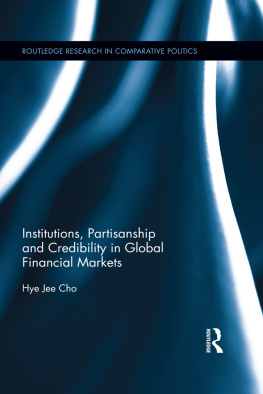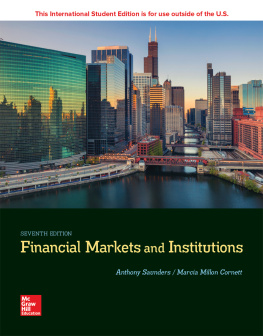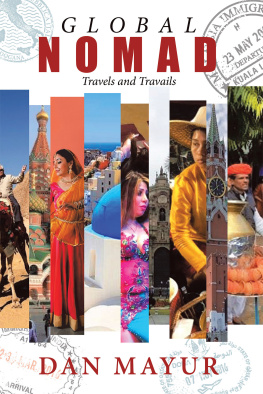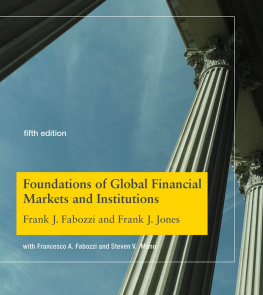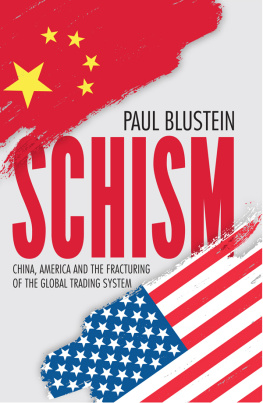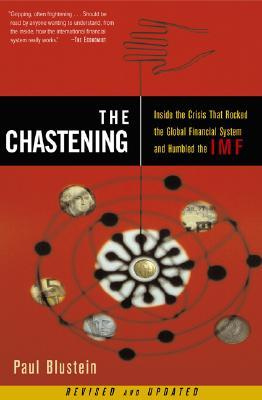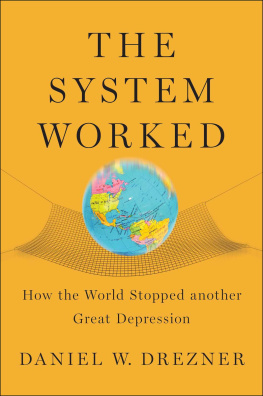Blustein - Off Balance: the Travails of Institutions That Govern the Global Financial System
Here you can read online Blustein - Off Balance: the Travails of Institutions That Govern the Global Financial System full text of the book (entire story) in english for free. Download pdf and epub, get meaning, cover and reviews about this ebook. City: Waterloo, year: 2013;2016, publisher: The Centre for International Governance Innovation;CIGI Press, genre: Politics. Description of the work, (preface) as well as reviews are available. Best literature library LitArk.com created for fans of good reading and offers a wide selection of genres:
Romance novel
Science fiction
Adventure
Detective
Science
History
Home and family
Prose
Art
Politics
Computer
Non-fiction
Religion
Business
Children
Humor
Choose a favorite category and find really read worthwhile books. Enjoy immersion in the world of imagination, feel the emotions of the characters or learn something new for yourself, make an fascinating discovery.

Off Balance: the Travails of Institutions That Govern the Global Financial System: summary, description and annotation
We offer to read an annotation, description, summary or preface (depends on what the author of the book "Off Balance: the Travails of Institutions That Govern the Global Financial System" wrote himself). If you haven't found the necessary information about the book — write in the comments, we will try to find it.
Blustein: author's other books
Who wrote Off Balance: the Travails of Institutions That Govern the Global Financial System? Find out the surname, the name of the author of the book and a list of all author's works by series.
Off Balance: the Travails of Institutions That Govern the Global Financial System — read online for free the complete book (whole text) full work
Below is the text of the book, divided by pages. System saving the place of the last page read, allows you to conveniently read the book "Off Balance: the Travails of Institutions That Govern the Global Financial System" online for free, without having to search again every time where you left off. Put a bookmark, and you can go to the page where you finished reading at any time.
Font size:
Interval:
Bookmark:

Off Balance
Off Balance: The Travails of Institutions That Govern the Global Financial System
2013 The Centre for International Governance Innovation
ALL RIGHTS RESERVED. No part of this publication may be reproduced, stored in a retrieval system or transmitted by any means, electronic, mechanical, photocopying, recording or otherwise, without the prior written permission of the publisher, application for which should be addressed to The Centre for International Governance Innovation, 57 Erb Street West, Waterloo, Ontario, Canada N2L 6C2 or publications@cigionline.org.
ISBN 978-0-9867077-6-6 (paper)ISBN 978-0-9867077-7-3 (ebook)
The opinions expressed in this publication are those of the author and do not necessarily reflect the views of The Centre for International Governance Innovation or its Operating Board of Directors or International Board of Governors.
Published by The Centre for International Governance Innovation.
Printed and bound in Canada.
Cover and page design by Steve Cross.

The Centre for International Governance Innovation 57 Erb Street West Waterloo, ON Canada N2L 6C2
www.cigionline.org
Contents
List of Acronyms
AEI American Enterprise Institute
BRIC Brazil, Russia, India and China
BIS Bank for International Settlements
CDOs collateralized debt obligations
CGFS Committee on the Global Financial System
CIGI The Centre for International Governance Innovation
FM fundamental misalignment
FDIC Federal Deposit Insurance Corporation
FSA Financial Services Authority
FSAP Financial Sector Assessment Program
FSB Financial Stability Board
FSF Financial Stability Forum
G5 Group of Five
G7 Group of Seven
G10 Group of Ten
G20 Group of Twenty
GATT General Agreement on Tariffs and Trade
G-SIFIs global systemically important financial institutions
IAIS International Association of Insurance Supervisors
IASB International Accounting Standards Board
ICRIER Indian Council for Research on International Economic Relations
IOSCO International Organization of Securities Commissions
IMF International Monetary Fund
MAP Mutual Assessment Process
PDR Policy Development and Review
RMB renminbi
ROSCs Reports on the Observance of Standards and Codes
SIV structured investment vehicle
TARP Troubled Asset Relief Program
VaR value at risk
WTO World Trade Organization
Authors Note and Acknowledgements
This is my fourth book about behind-the-scenes developments at international economic institutions. I will admit that when I was writing about institutions that are fairly well known that is, the International Monetary Fund (IMF) and the World Trade Organization (WTO) I didnt think I would ever bother with some of the more obscure ones, such as the Financial Stability Forum (FSF). But then along came the global financial crisis of 2008, which showed how badly the world needs the FSF and other international bodies like it to perform their duties competently. With the crisis as a backdrop, delving into the inner workings of the FSF proved to be surprisingly interesting and rewarding.
As readers will see, the book (except for its historical and concluding chapters) is heavily based on confidential documents from the institutions whose operations I have scrutinized. To obtain those documents, I conducted scores of interviews with current and former policy makers in North America, Europe and Japan, and found that a number of them were willing to grant access to memos, notes of meetings and emails. I am immensely grateful to these people, who for obvious reasons shall not be named, for enabling me to write a much more authoritative narrative. They recognized that, given a decent interval between the events in question and the publication of the book, little harm would result from their disclosure of this information, and that the cause of historical accuracy would be well served by my being able to rely on contemporaneous records rather than the hazy and sometimes selective memories of interested parties. When people are quoted as saying things in closed-door meetings, their words come directly from notes or confidential summaries taken by participants, unless otherwise specified in the narrative or in footnotes. Many interviewees, to be sure, were unable or unwilling to furnish documents, but they graciously spared the time to enlighten me on their recollections of key events and to them, too, I am deeply grateful, because their perspectives helped me put matters in proper context. With few exceptions, deep background rules applied to all interviews, which meant I could use the information but could not quote interviewees or cite them as sources unless they granted me permission to do so.
Journalists like me dont usually write books like this, which chronicles at such length the workings of international institutions on issues of such technical complexity. At the same time, scholars dont usually write books like this either. They tend to avoid anecdotes and the storytelling devices that are a journalists stock-in-trade, and scholars also go about gathering information and data in different ways than we journalists do (often at much higher levels of sophistication than we journalists are capable of). Persuading interviewees to furnish troves of confidential documents is a journalistic skill I have honed over the years; it is not high on the list of practices that think tank experts or university professors commonly employ. The ultimate result will, I hope, strike readers as an example of hybrid vigour, combining the strengths of journalism and scholarship, rather than a case of bastardization.
A word of explanation is in order concerning how the book is organized. When I started my research in 2010, I thought I would write broadly about how global institutions and bodies performed in all the major international aspects of the crisis; instead, I have ended up devoting in-depth coverage to a couple of institutions and to pre-crisis events. That is attributable to circumstances that are at least partly fortuitous. Seeking support for the project, I approached The Centre for International Governance Innovation (CIGI) in Waterloo, Ontario, where Tom Bernes, who was then CIGIs executive director, kindly offered to fund research papers on some of the proposed books key topics; we agreed that the papers would explore the FSFs history and the IMFs efforts to address the problems of global imbalances. I spent extensive time and energy obtaining confidential documents on those subjects, and succeeded way beyond my expectations. After CIGI published the papers in 2012, and I turned my attention to how the book would be structured, I concluded that making extensive use of the material from those papers would illuminate the main theme of the book far more cogently than a broad-brush approach. And in the meantime, some of the other episodes I had initially planned on chronicling the IMF rescues of Eastern European countries, for example had been eclipsed by events of much greater magnitude and importance, notably the crisis in the euro zone. The euro crisis proved far more prolonged than I had imagined, and, as a result, I am obliged to reserve for a future book a detailed study of the role played by international institutions in particular the IMF in that crisis.
In addition to Tom Bernes, who now holds the title of distinguished fellow at CIGI, Eric Helleiner provided enormous inspiration for this project. Eric, holder of the CIGI chair in international political economy at the Balsillie School of International Affairs, also in Waterloo, gave helpful guidance and encouragement throughout my research process, without which the book never would have reached fruition. Jim Haley, former director of CIGIs Global Economy Program, contributed greatly to the final product as well, by offering his critique of the two research papers. Once a draft of the book was finished, Tom together with Domenico Lombardi, the new director of CIGIs Global Economy Program conferred even more extensive assistance in the form of insightful feedback and suggestions for improvement. Tom, Domenico, Eric and Jim bear no responsibility for any errors or shortcomings in the book, of course, and they should be held totally blameless for my policy recommendations, from which they demurred to varying degrees. But their support and encouragement was invaluable, and I am especially grateful for the friendly spirit in which they gave it.
Font size:
Interval:
Bookmark:
Similar books «Off Balance: the Travails of Institutions That Govern the Global Financial System»
Look at similar books to Off Balance: the Travails of Institutions That Govern the Global Financial System. We have selected literature similar in name and meaning in the hope of providing readers with more options to find new, interesting, not yet read works.
Discussion, reviews of the book Off Balance: the Travails of Institutions That Govern the Global Financial System and just readers' own opinions. Leave your comments, write what you think about the work, its meaning or the main characters. Specify what exactly you liked and what you didn't like, and why you think so.

